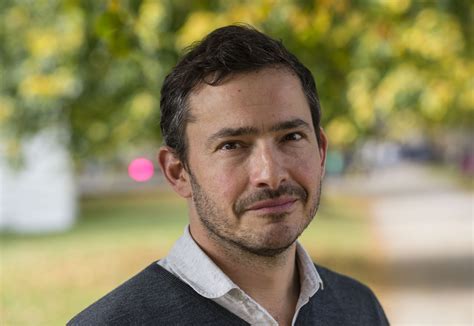A Quote by Howard Gardner
Distinguish between the work and the job title. When I was leaving school in the early 1970s, many people wanted to be journalists, carrying out investigative reporting for print newspapers. Print newspapers may not exist in twenty years. But good thinking and good writing about issues that need to be reported and investigated will always be needed; but where this happens, what it is called, and who pays for it may be quite different than could have been envisioned by the great journalists of the past.
Quote Topics
About
Always
Been
Between
Carrying
Could
Could Have Been
Different
Distinguish
Early
Envisioned
Exist
Good
Good Thinking
Good Writing
Great
Happens
Investigative
Issues
Job
Journalists
Leaving
Leaving School
Many
May
Need
Needed
Newspapers
Out
Past
Pays
People
Print
Quite
Reported
Reporting
School
Than
Thinking
Title
Twenty
Wanted
Will
Work
Writing
Years
Related Quotes
[The web] is going to end up being a tremendous advantage, providing we can work out the financial structure. I think we’ll see newspapers survive, being printed at home... Or you’ll have a local print shop, so that rather than waiting for the newspapers to arrive by truck, which is 30 percent at least of a newspaper’s cost, you’ll go in and push a button, and it will take your dollar bills without anyone having to be there. And it will print the newspaper for you while you wait. It will take seven minutes. There’s a terrific future for print in my view and it gives me great heart.
Journalists in newspapers and in many magazines are not permitted to be subjective and tell their readers what they think. Journalists have got to follow a very strict formulaic line, and here we come, these non-fiction writers, these former journalists who are using all the techniques that journalists are pretty much not allowed to use.
I think that all journalists, specifically print journalists, have a responsibility to educate the public. When you handle a culture's intellectual property, like journalists do, you have a responsibility not to tear it down, but to raise it up. The depiction of rap and of hip-hop culture in the media is one that needs more of a responsible approach from journalists. We need more 30-year-old journalists. We need more journalists who have children, who have families and wives or husbands, those kinds of journalists. And then you'll get a different depiction of hip-hop and rap music.
Journalism is a great profession. It's complicated now. People talk about the demise of investigative reporting. I was a judge in some award contest recently, and the stuff that is being done by major newspapers, and local, regional papers around the country, is great. Newspapers play an amazing role in our society, and I still think they are important. I'm sorry newspaper circulation is down. Ultimately, the importance of newspapers can't be replaced.
The first victim in journalism today is proximity. I know I've used that word a lot. Because of foreign budgets, newspapers have consolidated, and journalists now cover dozens of countries at a time. It is physically not possible for one person to understand and live the unique sets of experiences in all these places in honest and meaningful ways. Outlets used to send journalists to places like Congo for months at a time, and they were stationed there for months or years. There was a sense of immersive reporting, and that has been a casualty of the shift in news over the past years.
I think journalist is a great profession. It's complicated now. People talk about the demise of investigative reporting.Newspapers play an amazing role in our society, and I still think they are important. I'm sorry newspaper circulation is down. Ultimately, the importance of newspapers can't be replaced.
As people get their opinions so largely from the newspapers they read, the corruption of the schools would not matter so much if the Press were free. But the Press is not free. As it costs at least a quarter of a million of money to establish a daily newspaper in London, the newspapers are owned by rich men. And they depend on the advertisements of other rich men. Editors and journalists who express opinions in print that are opposed to the interests of the rich are dismissed and replaced by subservient ones.
I think that all journalists, specifically print journalists, have a responsibility to educate the public. When you handle a culture's intellectual property, like journalists do, you have a responsibility not to tear it down, but to raise it up. The depiction of rap and of hip-hop culture in the media, I think, is one that needs more of a responsible approach from journalists.
In this very uncertain time for the media, serious investigative reporting - the expensive, time-consuming stuff - is under enormous pressure at newspapers and other commercial news organizations. Non-profits such as the Center for Public Integrity are taking on this vital work and without them the prospects for investigative reporting would be even more dire. The Center has been properly celebrated for its careful, rigorous work, and to my mind it has now ascended to the status of national treasure.

































